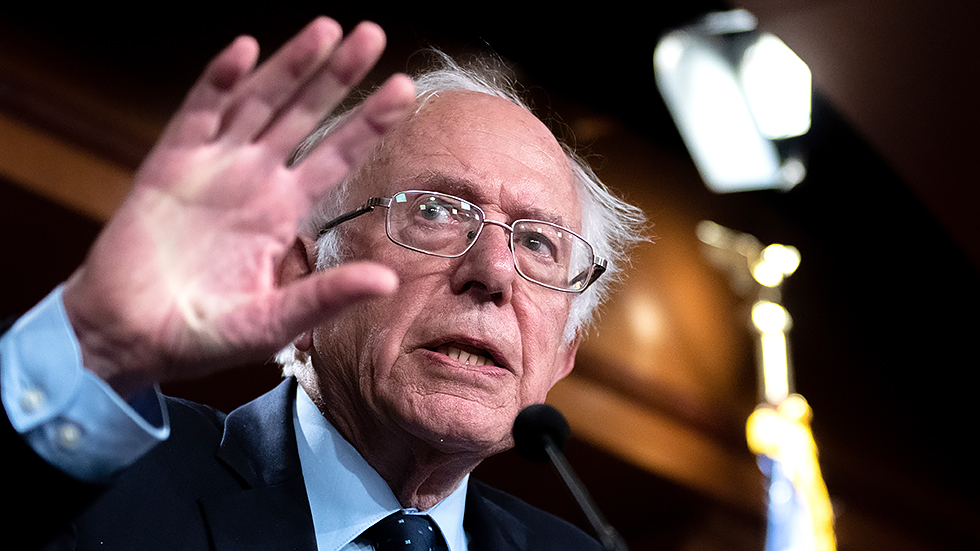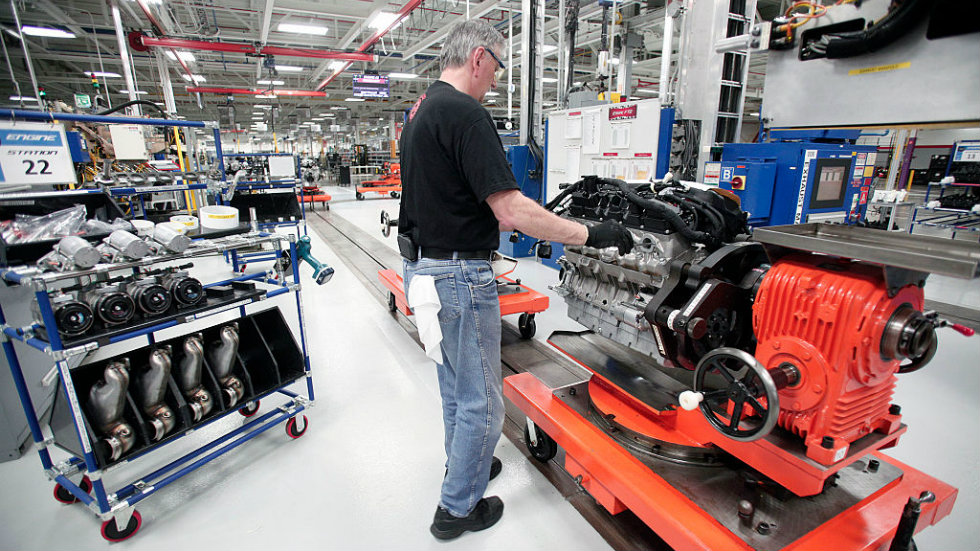On The Money — Progressives play hard ball on Biden budget plan

Happy Thursday and welcome to On The Money, your nightly guide to everything affecting your bills, bank account and bottom line. Subscribe here: digital-stage.thehill.com/newsletter-signup.
Today’s Big Deal: Progressive Democrats want leaders to go broad and dare Republicans to let popular programs expire. We’ll also look at a sharp decline in jobless claims and climate concerns.
But first, congrats to the woman who found a giant diamond in a state park!
For The Hill, I’m Sylvan Lane. Write me at slane@digital-stage.thehill.com or @SylvanLane. You can reach my colleagues on the Finance team Naomi Jagoda at njagoda@digital-stage.thehill.com or @NJagoda and Aris Folley at afolley@digital-stage.thehill.com or @ArisFolley.
Let’s get to it.
Left doubles down on aggressive strategy

Emboldened progressives are doubling down on their aggressive strategy after an early victory over centrists, suggesting they see that approach as a winner in the intraparty fight.
Liberal lawmakers in the House and Senate are calling for social safety net programs to be as universal as possible, pushing back against centrist Sen. Joe Manchin’s (D-W.Va.) calls for programs to be “means-tested” and targeted toward the lowest-income households.
They also want programs that provide benefits to families to start as quickly as possible, rather than have a delayed start date in an effort to minimize the price tag.
The background:
- The overall cost of the reconciliation package is going to have to be cut down from the $3.5 trillion mark championed by Sen. Bernie Sanders (I-Vt.) and other progressives in order to win the support of Manchin, Sen. Kyrsten Sinema (D-Ariz.) and some centrist Democrats in the House.
- A number of moderate Democrats would prefer that fewer items be funded for a longer period of time.
- But progressives don’t want the cuts to come from eliminating new forms of aid and other programs that they want to launch.
They argue that priorities such as child care and education will be popular with the public, so lawmakers will feel pressure to extend any temporary programs once they begin.
“If given a choice between legislating narrowly or broadly, we strongly encourage you to choose the latter, and make robust investments over a shorter window,” Congressional Progressive Caucus (CPC) leadership said in a letter to Pelosi Wednesday.
Naomi Jagoda and Scott Wong have more here.
LEADING THE DAY
Jobless claims fall below 300k for first week since lockdowns
New weekly claims for jobless aid sunk to a pandemic low last week, according to data released Thursday by the Labor Department, falling below 300,000 for the first time since COVID-19 shattered the economy.
- In the week ending Oct. 9, seasonally adjusted initial claims for unemployment insurance fell to 293,000, a decline of 36,000 from the previous week’s revised total.
- Claims dropped to the lowest level since the week of March 14, 2020, when the U.S. saw 256,500 new applications for jobless aid shortly before more than 20 million Americans lost their jobs.
While job growth fell off sharply in August and September amid surging cases of COVID-19, the continued decline in jobless claims this month suggests businesses have been able to avoid widespread layoffs. I explain why here.
UNBREAK THE CHAIN
What you need to know about the supply chain bottlenecks
Supply chain snarls and labor shortages are driving prices higher and creating shortages as the economy struggles to adapt to a new phase of the coronavirus pandemic.
After slashing prices and laying off workers at the onset of COVID-19, manufacturers, suppliers and retailers have struggled for months to meet the quick rebound in demand unleashed by unprecedented federal aid and highly effective coronavirus vaccines.
- Consumer prices rose 0.4 percent in September and 5.4 percent in the 12 months leading into it, according to data released Wednesday by the Labor Department.
- Much of the September jump came from rising food, energy and shelter prices — an economically challenging mix for Americans with tight budgets and a politically toxic combination for President Biden and Democrats.
While the Biden administration is scrambling to ease the problem, Joe Brusuelas, chief economist at audit and tax firm RSM, warned that only time will fully normalize supply lines.
“At this point there’s not much that the federal government can do to what can accurately be described as a behavioral shock,” Brusuelas said.
Here’s what you need to know about the supply chain challenges.
TOXIC CLIMATE
Moderates split over climate plans in Democrats’ spending package
Climate change provisions in a sprawling Democratic spending package are dividing moderates, creating major obstacles to getting the legislation across the finish line.
- Those who have raised concerns include Sen. Joe Manchin (D-W.Va.) and several Texas Democrats in the House who have criticized proposals designed to accelerate the country’s shift toward cleaner energy and away from fossil fuels.
- But other centrists, like Rep. Stephanie Murphy (D-Fla.) and Sen. Kyrsten Sinema (D-Ariz.), have appeared more open to those components of the package as they criticize other elements.
Key aspects of the House package would make sweeping changes to address climate change, through tax credits for clean energy and electric vehicles, a fee on methane emissions from oil and gas, and a program that seeks to switch electricity to clean energy sources through a combination of grants and fines.
But the divisions among moderates largely reflect regional interests, underscoring the challenges to getting the moderate wing of the party on board with the multitrillion-dollar spending package. Naomi and Rachel Frazin have more here.
Good to Know

Prices charged by producers rose at a slightly slower rate in September despite supply chain snarls and shortages that have driven up manufacturing and shipping costs.
Here’s what else have our eye on:
- Sens. Amy Klobuchar (D-Minn.) and Chuck Grassley (R-Iowa) will be introducing legislation to block the country’s biggest tech companies from prioritizing their own products over their rivals.
- Over 10,000 employees of farming equipment manufacturer John Deere went on strike Thursday morning after failing to come to an agreement on a deal regarding pay raises.
{mosads}That’s it for today. Thanks for reading and check out The Hill’s Finance page for the latest news and coverage. We’ll see you tomorrow.
Copyright 2023 Nexstar Media Inc. All rights reserved. This material may not be published, broadcast, rewritten, or redistributed. Regular the hill posts







